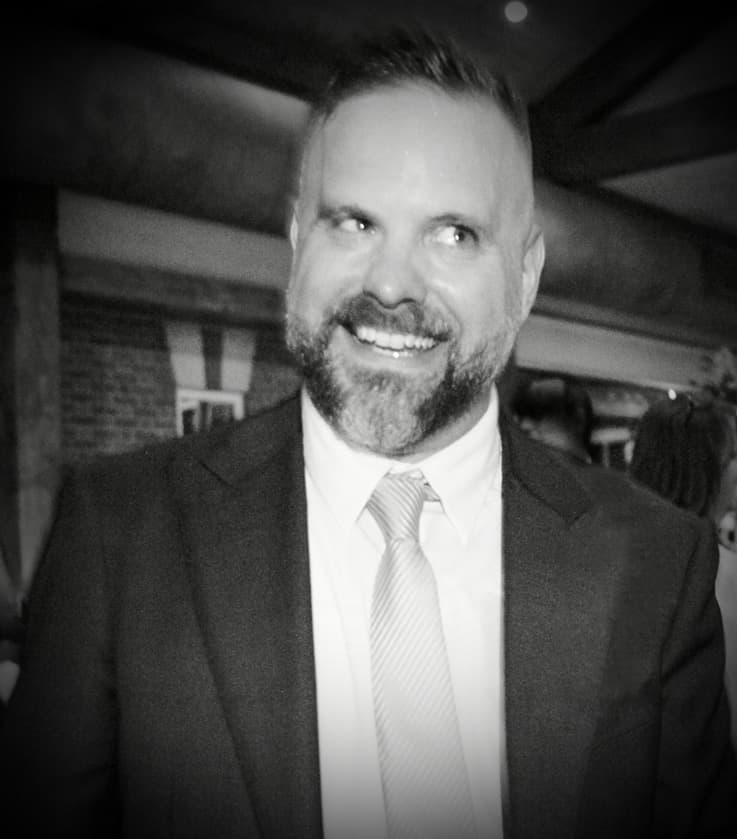You're Going To Meet Some People: Damien Vosk
During 2015, Improv Conspiracy member Mike Brown is going to have a chat to every single member of the Conspiracy - about life, about improv, and everything in between. This is: You're Going To Meet Some People.
Today, Mike chats with his iO Theatre Summer intensive classmate Damien Vosk. Damien currently plays on Harold Night team Shake-A-Stick, performs stand-up around Melbourne, and will be teaching introductory improv class Level 1: Basic Scenework from Saturday, June 6, which is on sale now.
 Mike Brown: Hey Damo.
Mike Brown: Hey Damo.
Damien Vosk: Hello Mike.
How did you find The Improv Conspiracy, how'd you get involved?
I got involved in a roundabout way, where I went on a gap year in the middle of my degree. I did Arts/Law at Monash, and I was pretty uninspired by the law aspect, generally I just tried to subvert the law at every opportunity.
How can I get away with this?
Yeah, law wasn't the best choice for me, I was hating it basically. So I went overseas to see what I wanted to do, and I did a couple of acting courses in New York that really inspired me. A couple of people in my class dragged me along to an improv group their school had. I had a lot of fun in there, I was just sort of awestruck by it – how are these people doing this, it is amazing, there’s gotta be some sort of trick to it, it just blew my mind.
From there I went through and researched my favourite actors and it was like – I'm clearly not going to be a lawyer. I went through all my favourite actors and I found that one thing they all had in common was that they all did improv. So I did a few drop-in classes with the improv group at that university, but I knew nothing of iO or Second City or UCB or whatever.
What kind of improv were they doing? Was it short form?
They were doing a mix – they were doing some short form and some long form. It was in New York so they had both influences. So I came back to Melbourne and enrolled in Impro Melbourne. I did that for a while, that was entertaining me for a little bit. But it’s sort of short form, I see people get away with a lot, and it’s not as challenging. So when Improv Conspiracy started up, I thought I wanted more stage time, so I jumped over there. Aside from run our own indie group, which we did as well.
Tell us about your indie group.
It was Impro Chimps, and it started off with a couple of guys who rocked up to The Clyde, which is a bar in Carlton at the end of each month and we’d do free shows. Then the guy who organised it moved to Sydney, and it was April [Seymore], me, Dan [Pavatich], Tim [Quabba], Marcus [Willis], and a couple of others who aren't involved with Conspiracy. We started getting some really good crowds, it was a lot of fun, did half short from, half long form.
Then you joined the Conspiracy fairly early on, right?
Yeah. Just ended up on a Harold team and went on.


 Mike Brown: Hey Nadine!
Mike Brown: Hey Nadine! Mike Brown: We all good?
Mike Brown: We all good? Mike Brown: Play Like A Girl is the Conspiracy’s first gender specific improv show. What has it been like performing together with a group of women compared to playing as part of your Harold team or playing as part of the Remix, where the genders are mixed? Are there differences?
Mike Brown: Play Like A Girl is the Conspiracy’s first gender specific improv show. What has it been like performing together with a group of women compared to playing as part of your Harold team or playing as part of the Remix, where the genders are mixed? Are there differences?
 Mike Brown: These are all from the student group.
Mike Brown: These are all from the student group. Mike Brown: Hello Sophie, welcome.
Mike Brown: Hello Sophie, welcome.

 Mario Hannah: You guys get comfortable, we're going all night.
Mario Hannah: You guys get comfortable, we're going all night. Broni Lisle: Hello iPhone.
Broni Lisle: Hello iPhone.